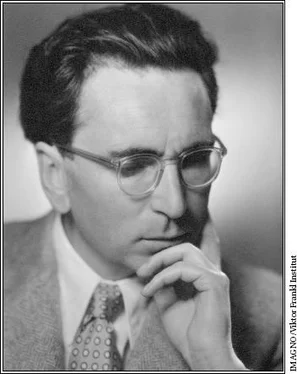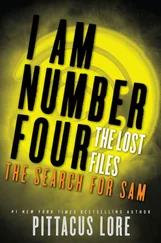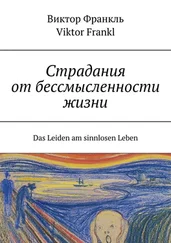Perhaps there came a day for some of us when we saw the same film again, or a similar one. But by then other pictures may have simultaneously unrolled before one’s inner eye; pictures of people who attained much more in their lives than a sentimental film could show. Some details of a particular man’s inner greatness may have come to one’s mind, like the story of the young woman whose death I witnessed in a concentration camp. It is a simple story. There is little to tell and it may sound as if I had invented it; but to me it seems like a poem.
This young woman knew that she would die in the next few days. But when I talked to her she was cheerful in spite of this knowledge. “I am grateful that fate has hit me so hard,” she told me. “In my former life I was spoiled and did not take spiritual accomplishments seriously.” Pointing through the window of the hut, she said, “This tree here is the only friend I have in my loneliness.” Through that window she could see just one branch of a chestnut tree, and on the branch were two blossoms. “I often talk to this tree,” she said to me. I was startled and didn’t quite know how to take her words. Was she delirious? Did she have occasional hallucinations? Anxiously I asked her if the tree replied. “Yes.” What did it say to her? She answered, “It said to me, ‘I am here—I am here—I am life, eternal life.’”
We have stated that that which was ultimately responsible for the state of the prisoner’s inner self was not so much the enumerated psychophysical causes as it was the result of a free decision. Psychological observations of the prisoners have shown that only the men who allowed their inner hold on their moral and spiritual selves to subside eventually fell victim to the camp’s degenerating influences. The question now arises, what could, or should, have constituted this “inner hold”?
Former prisoners, when writing or relating their experiences, agree that the most depressing influence of all was that a prisoner could not know how long his term of imprisonment would be. He had been given no date for his release. (In our camp it was pointless even to talk about it.) Actually a prison term was not only uncertain but unlimited. A well-known research psychologist has pointed out that life in a concentration camp could be called a “provisional existence.” We can add to this by defining it as a “provisional existence of unknown limit.”
New arrivals usually knew nothing about the conditions at a camp. Those who had come back from other camps were obliged to keep silent, and from some camps no one had returned. On entering camp a change took place in the minds of the men. With the end of uncertainty there came the uncertainty of the end. It was impossible to foresee whether or when, if at all, this form of existence would end.
The Latin word finis has two meanings: the end or the finish, and a goal to reach. A man who could not see the end of his “provisional existence” was not able to aim at an ultimate goal in life. He ceased living for the future, in contrast to a man in normal life. Therefore the whole structure of his inner life changed; signs of decay set in which we know from other areas of life. The unemployed worker, for example, is in a similar position. His existence has become provisional and in a certain sense he cannot live for the future or aim at a goal. Research work done on unemployed miners has shown that they suffer from a peculiar sort of deformed time—inner time—which is a result of their unemployed state. Prisoners, too, suffered from this strange “time-experience.” In camp, a small time unit, a day, for example, filled with hourly tortures and fatigue, appeared endless. A larger time unit, perhaps a week, seemed to pass very quickly. My comrades agreed when I said that in camp a day lasted longer than a week. How paradoxical was our time-experience! In this connection we are reminded of Thomas Mann’s The Magic Mountain , which contains some very pointed psychological remarks. Mann studies the spiritual development of people who are in an analogous psychological position, i.e., tuberculosis patients in a sanatorium who also know no date for their release. They experience a similar existence—without a future and without a goal.
One of the prisoners, who on his arrival marched with a long column of new inmates from the station to the camp, told me later that he had felt as though he were marching at his own funeral. His life had seemed to him absolutely without future. He regarded it as over and done, as if he had already died. This feeling of lifelessness was intensified by other causes: in time, it was the limitlessness of the term of imprisonment which was most acutely felt; in space, the narrow limits of the prison. Anything outside the barbed wire became remote—out of reach and, in a way, unreal. The events and the people outside, all the normal life there, had a ghostly aspect for the prisoner. The outside life, that is, as much as he could see of it, appeared to him almost as it might have to a dead man who looked at it from another world.
A man who let himself decline because he could not see any future goal found himself occupied with retrospective thoughts. In a different connection, we have already spoken of the tendency there was to look into the past, to help make the present, with all its horrors, less real. But in robbing the present of its reality there lay a certain danger. It became easy to overlook the opportunities to make something positive of camp life, opportunities which really did exist. Regarding our “provisional existence” as unreal was in itself an important factor in causing the prisoners to lose their hold on life; everything in a way became pointless. Such people forgot that often it is just such an exceptionally diffcult external situation which gives man the opportunity to grow spiritually beyond himself. Instead of taking the camp’s diffculties as a test of their inner strength, they did not take their life seriously and despised it as something of no consequence. They preferred to close their eyes and to live in the past. Life for such people became meaningless.
Naturally only a few people were capable of reaching great spiritual heights. But a few were given the chance to attain human greatness even through their apparent worldly fail- ure and death, an accomplishment which in ordinary circumstances they would never have achieved. To the others of us, the mediocre and the half-hearted, the words of Bismarck could be applied: “Life is like being at the dentist. You always think that the worst is still to come, and yet it is over already.” Varying this, we could say that most men in a concentration camp believed that the real opportunities of life had passed. Yet, in reality, there was an opportunity and a challenge. One could make a victory of those experiences, turning life into an inner triumph, or one could ignore the challenge and simply vegetate, as did a majority of the prisoners.
Any attempt at fighting the camp’s psychopathological influence on the prisoner by psychotherapeutic or psychohygienic methods had to aim at giving him inner strength by pointing out to him a future goal to which he could look forward. Instinctively some of the prisoners attempted to find one on their own. It is a peculiarity of man that he can only live by looking to the future— sub specie aeternitatis . And this is his salvation in the most diffcult moments of his existence, although he sometimes has to force his mind to the task.
I remember a personal experience. Almost in tears from pain (I had terrible sores on my feet from wearing torn shoes), I limped a few kilometers with our long column of men from the camp to our work site. Very cold, bitter winds struck us. I kept thinking of the endless little problems of our miserable life. What would there be to eat tonight? If a piece of sausage came as extra ration, should I exchange it for a piece of bread? Should I trade my last cigarette, which was left from a bonus I received a fortnight ago, for a bowl of soup? How could I get a piece of wire to replace the fragment which served as one of my shoelaces? Would I get to our work site in time to join my usual working party or would I have to join another, which might have a brutal foreman? What could I do to get on good terms with the Capo, who could help me to obtain work in camp instead of undertaking this horribly long daily march?
Читать дальше












